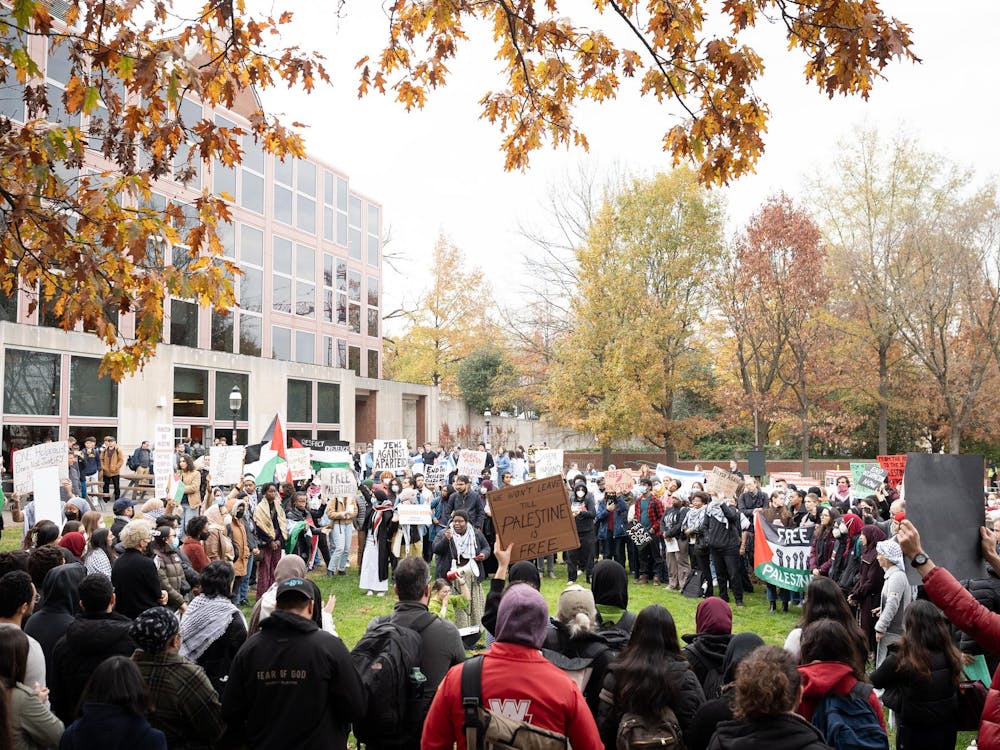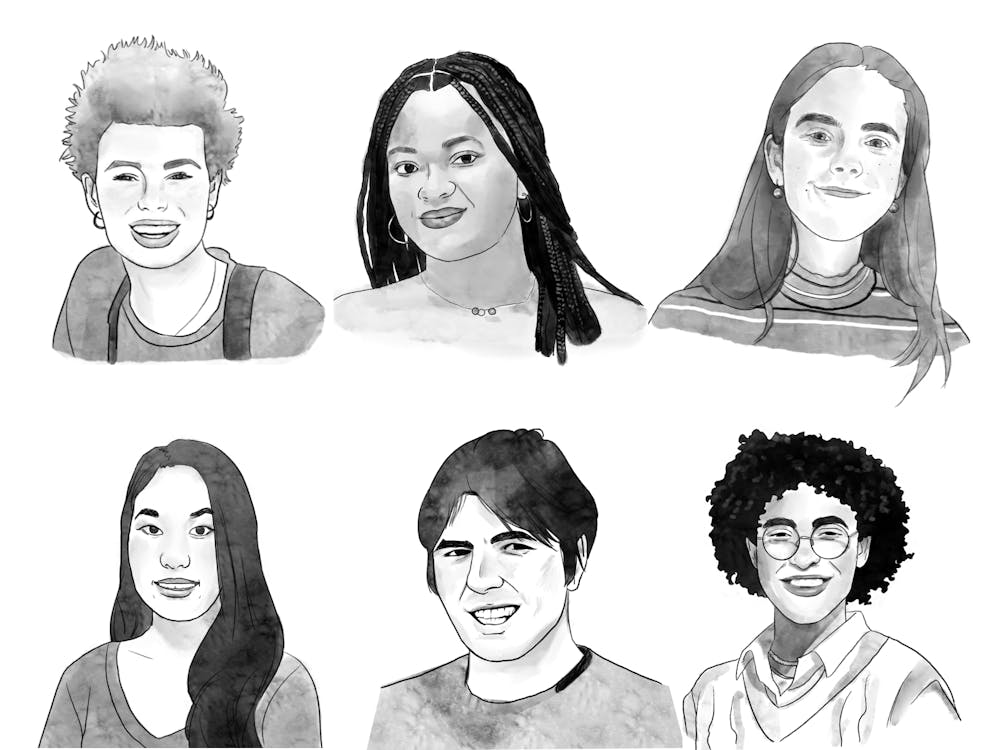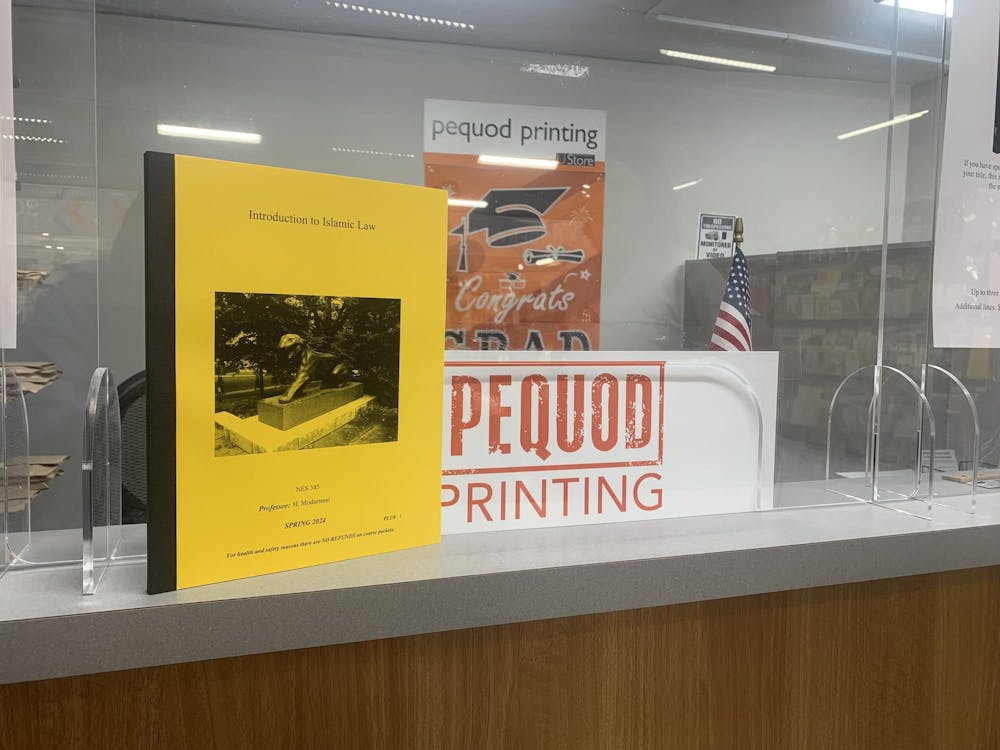by Aparna Raghu '18
As a Women*s Center student staff member and the Vice President of Programming of the Princeton Women’s Mentorship Program, I would like to respond to the recent editorial, “Yes All Women’s Center.” In this piece, the Editorial Board calls upon the Women*s Center to refocus its programming and take greater input from students. While this perspective is certainly valid, and the Women*s Center welcomes any and all feedback from the student body, I would like to address some claims made in the editorial.
Even before discussing this editorial, its title must be appraised. The YesAllWomen hashtag is meant to give women a platform to share experiences of misogyny and violence that too many women face. Using that phrase in this title is trivializing and demeaning, not only to this movement but also to the Women*s Center’s attempts to address issues of sex-positivity, which helps counter such misogyny.
In the editorial itself, the Board first calls on the Women*s Center to “refocus its programming to emphasize core issues directly affecting the undergraduate experience,” citing the recent events concerning sexuality, genitalia, and self-pleasure as examples of events that do not fit this standard. However, this sex-positive, informative programming was well-received by the student body, as evidenced by high attendance by people of all genders, from a wide variety of backgrounds and identities. Talking about anatomy, sex, and sexuality in a supportive setting empowers people to make decisions about their own bodies. Furthermore, while the Board deemed the publicity for these events “crass,” this advertising helped spark open, honest, and clear dialogue between students of all backgrounds and political perspectives regarding sexuality. Calling these statements “crass” reinforces the lack of prioritization of comprehensive, inclusive sex education, making such events necessary to provide important information that many students failed to receive in high school.
The Board also claims that the Women*s Center publicity was “off-putting to many students,” while emphasizing that it (the Board) supports freedom of expression. Yet if open and informed discussions, through events like the ones held last week, cannot be held by the Women*s Center, how and where can students express and develop their views on these matters at all? Preventing such events does a disservice to students of all genders and political perspectives by failing to provide a platform to hold such discussions respectfully and openly.
Despite the fact that the sessions with Ellen Heed included sessions on male and intersex genitalia, the Board only focuses on the discussion of female genitalia, claiming that “over-emphasizing issues related to sexuality at the expense of other valuable programming...could harmfully reduce Princeton women to their bodies”. However, informed discussions of sexuality, self-pleasure, and genitalia do exactly the opposite. These discussions allow women on college campuses to understand and value their bodies in a society that polices female sexuality (and its discussion). Censoring such events only reinforces this policing of women’s bodies, by claiming that their sexuality is not important or appropriate enough to be discussed. Furthermore, open conversation about sexuality benefits people of all genders by allowing them to discuss questions in a safe space and gain an understanding of anatomy and sexuality that are too often censored in schools. This relates to the notion that the Women*s Center is a space for all genders, which is reflected in our title itself, the “Women*s Center” rather than the “Women’s Center.” This title is meant to recognize past and present gender inequality at Princeton, while using the asterisk to complicate the idea that the center is for women only.
Instead of last week’s events, what should the Women*s Center focus on? The Board claims that higher-impact programming would focus on helping women who are “pursuing leadership opportunities or seeking career advice.” Not only is the Women*s Center involved in such programming, but more importantly, the Board’s emphasis on such programming over discussions of sexuality echoes the “lean-In” feminism that places excessive value on ensuring that women can access corporate leadership positions. This approach fails to question the role of capitalism in sustaining gender inequality and forgets that initiatives to place women in corporate leadership roles often only benefit white, heterosexual, cis-gendered, well-off women. Promoting women’s leadership is important, but it is not the only role of the Women*s Center.
Thus, it is not a failure in prioritizing that caused the Women*s Center to hold the “Sex with the Lights On” events before career-related events. Rather, events about sexuality are equally important, and assuming that sexuality is irrelevant or unimportant reinforces taboos and stereotypes that often police women. Furthermore, events are often timed based on speaker availability, complicating the Board’s claim about prioritization. An event’s proximity to the beginning of the year does not reflect its priority, given that it is so difficult to find speakers who are available when students are during the semester.
On event cited by the Board, Elect Her, is being sponsored by the Women’s Mentorship Program (WMP), a group that has been supported and advised by the Women*s Center. WMP’s mission is to address issues pertaining to women’s leadership, meaning there is actually an entire organization on campus dedicated to this mission that the Board deems worthwhile. Yet WMP’s focus on women’s leadership strives to go beyond reinforcement of traditional perceptions of leaders. For example, Elect Her is meant to not only encourage women to run for elected positions, but also to provide women with self-presentation skills that will help them in any field, thus helping counter traditional capitalist perspectives on women’s leadership. Hence, the timing of Elect Her, while perhaps inconvenient for those who would have used this workshop to help them run for Freshman Class Office, is not a tragic result of “misplaced priorities.”
In terms of the Center’s “politically charged and overwhelmingly liberal events,” it is self-contradictory of the Board to claim, on one hand, that it promotes freedom of expression while, on the other hand, deeming events like the ones discussing Black Lives Matter and abortion stigma too liberal and political for discussion. Such events are not party affiliated. Instead, discussions such as the one about abortion stigma specifically serve to reveal perspectives that are rarely shared on campus. Given the fact that the Women*s Center allows organizations of all political perspectives to use its space, for example through the open house held by Princeton Pro-Life in the Center last Friday evening, the claim that we are politically homogenous is simply not true. If the Women*s Center cannot hold programs and host student groups that take stances on contentious issues, these important discussions will remain undiscussed - for what better place to host events that allow people of all genders to discuss controversial issues that deeply and personally affect them, like issues of police brutality and reproductive justice?
It is important to note that the Board is right in suggesting that the Women*s Center incorporate student feedback. However, the Board fails to acknowledge that the Women*s Center’s has already undertaken efforts to do so. For example, around when the Fields Center started the Fellows program, the Women*s Center hired six new student staff members for a total of seven student workers, all of whom are certainly “culturally and politically diverse.” Furthermore, the Women*s Center has and will continue to use survey data to better serve the student body. We will continue to incorporate student feedback, including feedback from this editorial. Our programming on topics like sexuality, however, does not show a failure to engage. In fact, it does just the opposite. Of course we will do our best to address the concerns of those who feel excluded by our programming. But it is crucial that we continue to host programming like the discussions with Ellen Heed. These discussions may not fit traditional expectations of what is needed to “support female Princetonians,” but they instead help us truly support and engage Princetonians of all genders.

Aparna Raghu is a Molecular Biology Major from Short Hills, NJ. She can bereached ataraghu@princeton.edu.
I would like to thank Amina Simon for her significant help in editing this article; also the Women*s Center student staff (Tess W. Jacobson, Teresa Irigoyen-López, Mikaela Gerwin, Melissa A. De Queredo, Rachel H. Marek, and Jillian Silbert) and the Women’s Mentorship Program Leadership Team (Emily Kraeck, Nadia Diamond, Adriana Rubertone, and Isabella Lloyd-Damnjanovic) for providing ideas and clarifications.








